The Standells | Interview | Tony Valentino
In 2023 rock and roll legend Tony Valentino released his latest album, ‘Dirty Water Revisited’.
As a founding member and guitarist of the iconic band The Standells, Valentino brings new life to classic hits like ‘Dirty Water’ and ‘Sometimes Good Guys Don’t Wear White’ alongside fresh tracks performed with the same raw power and swagger that fans have come to expect. The Standells, an American rock band formed in the early 1960s, quickly rose to fame with their hit songs ‘Dirty Water’ and ‘Sometimes Good Guys Don’t Wear White’. Known for their gritty, garage rock sound and rebellious attitude, The Standells embodied the rebellious spirit of the 60s and became iconic figures in the world of rock and roll. With their catchy hooks and infectious energy, The Standells continue to be celebrated for their contributions to the music world and their lasting impact on the rock genre. With his new band, Tony Valentino is back where he belongs, delivering a sound that shaped rock and roll history. ‘Dirty Water Revisited’ is released via Big Stir Records on Vinyl, CD, or Streaming platforms.
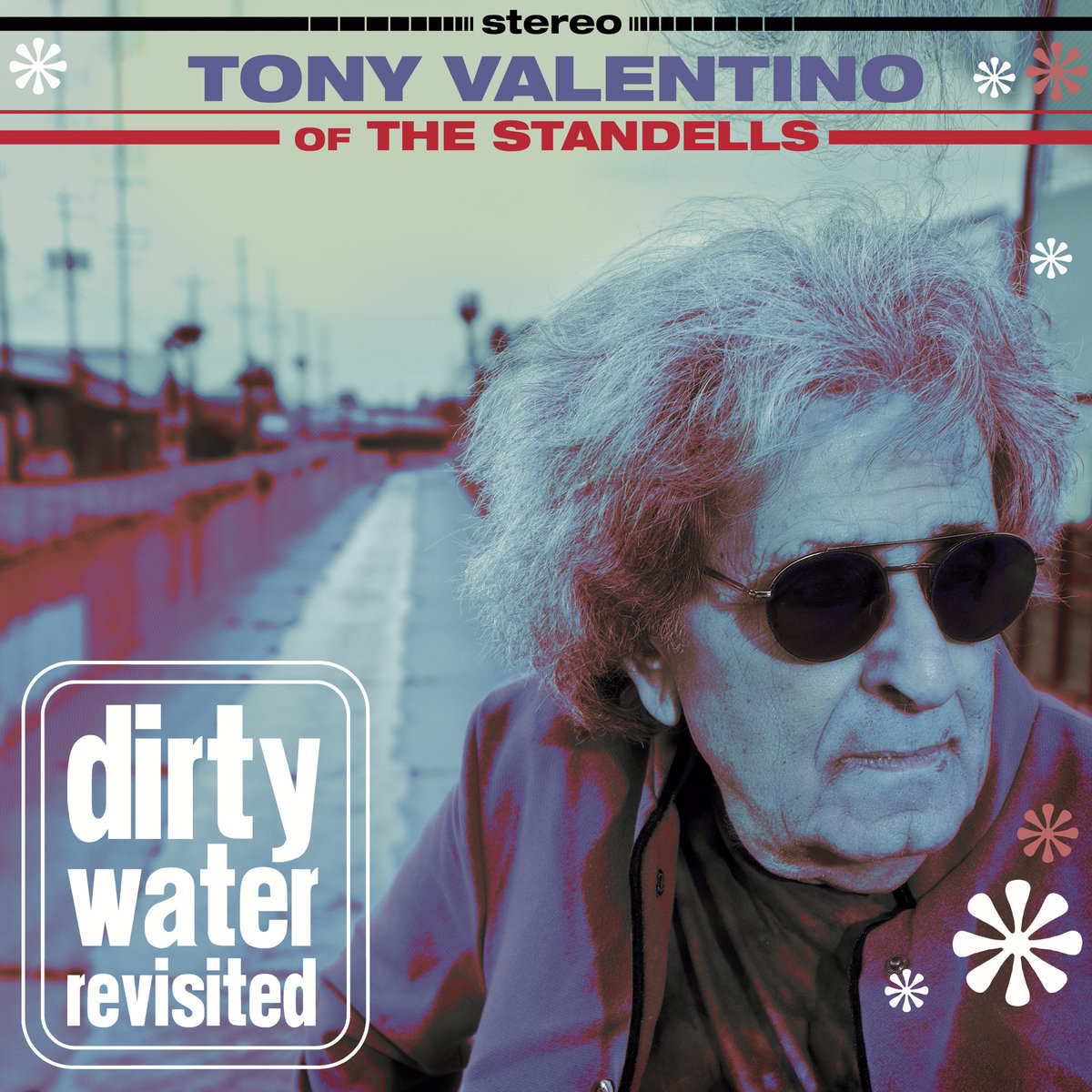
“The most memorable place where I played or a gig that I’ve done was the Shea Stadium in New York with 100,000 people”
How do you feel about the fact that it’s 60 years since The Standells formed and we’re still talking about it? Pretty incredible, isn’t it?
Tony Valentino: Yes, it is pretty incredible. And I must say, all these years, I stuck by promoting myself and the name… always with the music, meeting new people, playing after the band broke up in the late sixties, I continued with the band… went to Canada for about 12, maybe 10, 9 years… something like that…through the seventies, and I continued with the name because everybody else quit the band. Larry quit the band and I continued for until 1977. Anyway, and that’s why we are still famous and also because a big contribution was from the Sex Pistols because they were big fans… Joe Strummer, The Clash and so many other big names that still like the Standells. Even Bruce Springsteen played ‘Dirty Water’. I’m very honored for him to play my riff on his guitar. I couldn’t believe it! Anyway, all these years I’ve been always promoting and playing music and always keeping the name alive.
How do you remember those early formative years? What would you say were some of the most important influences when it comes to your guitar playing?
I remember the first early days in my influence playing my guitar. I am from Italy and I used to play a couple of chords on the guitar… Italian music, until I started listening to Elvis. They started playing Elvis in Italy and like Bill Haley and the Comets, The Platters, all kinds of different blues people. And I was so impressed that I go, “How in the hell does this guy play the solo on ‘Rock Around the Clock?’” I was amazed! And I go, I gotta go to America. I gotta go make… I want to go play rock and roll. I got to do that. So, finally my day came to come to the United States. And when I got here, some people got me a guitar… because we came in here with no money, nothing…broke, with my family. Anyway, my guitar playing got influenced when I got here, by listening to a lot of blues guys. Like, I remember I used to listen to Freddie King, and later on I heard, like Chris Montez, the song that got stuck in my mind. ‘All You Had To Do’ or ‘Tell Me’… something like that. And songs I heard from other people…from when I started the band. And I was always messing around with the riffs. And then, ‘Donna’ by Ritchie Valens, and you know, I used to listen to Buddy Holly and all those guys. And so that’s how I got influenced to play, you know, my guitar.
There’s a funny story surrounding your band’s name.
The band name… here’s what happened: I started the band with Jody Rich. I was working in Van De Camps, this bakery, and I was allergic to flour, so they switched me to the oven department and I met this guy named Jody Rich, and he goes, I play bass and I go, I play a little guitar. And he goes, Let’s start a band. So we started a band called The Starlighters, and we had Lanny Duncan in the band. He was a lead singer, and we used to rehearse in my garage in Hollywood down here all the way. And one day we’re working on an original instrumental, and it was called ‘Delayed Action’. It was like… not finished. And then I put my guitar…I put a guitar part in there, and then when we went to play…we couldn’t get anywhere. We went one day to see a football game in Burbank, and they were clapping their hands. And on the way out I told the guys, let’s call the song ‘Let’s Go’ instead of ‘Delayed Action’. After a couple of weeks, we went to Glendale, California, and recorded the song, we paid $5 each and recorded the song. And so that was a big, huge hit. It was called ‘Let’s Go’ by The Routers. One day Lanny Duncan disappeared and me and Jody were left with no lead singer, and we were looking for another member. We met Larry… met Larry Tamblyn. And then we found this agent called McConkey Artists Agency in Hollywood. And he goes, I can book you guys, but you need to make up a different name, though. Change the name of the band. Well, we were called Starlighters, me and Lanny and Jody. So, the agent sends us to the corner of Yucca and Wilcox for a couple, two or three days. We couldn’t come up with a name. We were standing around. The first time we came up with a name it was Standel, an awesome amplifier that was already out. And then we were scared that we would get sued by Standel so we changed the name from Standel to Standells with two L’s and that was it. And we all come up with the name and not just one guy. We were three guys…myself (Tony Valentino), Jody Rich and Larry. We were all a part of coming up with the name. And so it was because of standing around… and because of the Standel amplifier.
How did you get a contract to be part of several movies back in the 60s? Follow the Boys (1963), Get Yourself a College Girl (1964), Riot on Sunset Strip (1967). The latter is now considered a cult classic among counterculture fans. Is there a certain moment you like to recall from it?
Okay. The reason for that was that we got signed with Seymour Heller. He was the manager of Liberace, so he had a lot of connections. And so he started booking us, like in different places. And he got us to do Get Yourself a College Girl first. And then we did Ben Casey. We did the Hollywood Palace, we did the Mike Douglas show, Riot on Sunset Strip the movie, and so on. The Munsters… very, very, very important! And so because of him, they booked us to get all this all these great, you know, to be in great movies! And that was because of the connections that he had.
How did you usually approach music making? Were you hanging at rehearsal and just jamming together until something interesting came from it or did you all come with your own ideas to the rehearsal?
Well, in those days we used to play… remember, we went to Hawaii and Jody Rich was our leader of the Standells and he was really strict. He made us shine our shoes all the time, every day before we went on stage! We had to rehearse all the time, and so he wouldn’t let us go out until we rehearsed. He was in the Army, so he was really strict with me and Larry. And then we were supposed to be there for six weeks. We ended up staying six months. So playing every night, six nights a week. And then we came back. Jody disappeared. He went his separate way and me and Larry continued. So we went to playing clubs six nights a week. So that’s why we were so tight and so, you know, learning other people’s material. In those days we weren’t doing really much original material. And so that’s the influence of rehearsal. We used to rehearse, but not, not so much. We used to rehearse, you know, to play different songs when we used to play PJ’s or the Peppermint West, which was an incredible club to play… all the movie stars used to come there, and that’s where we met our manager, Burt Jacobs, and he got us signed with Greengrass Productions and Ed Cobb and Seymour Heller. So that’s when we got our manager, Burt Jacobs, anyway. And then because of that is the history, because when we were recording at the Ritchie Partner Studio, I used to know Cory Wells from San Francisco and some of the guys from Three Dog Night from San Francisco and we turned them on to our manager. And then Dick Dodd quit the band in ‘68 and Larry and I went to sign a new contract with Dunhill Records. But Dick Dodd never showed up to sign. So Three Dog Night took our contract, and so our manager gave the contract to Three Dog Night. So that’s a piece of history. I’m responsible for that, also. So there was a rehearsal, we used to rehearse… but we played six nights a week. That was the best rehearsal we could ever have.
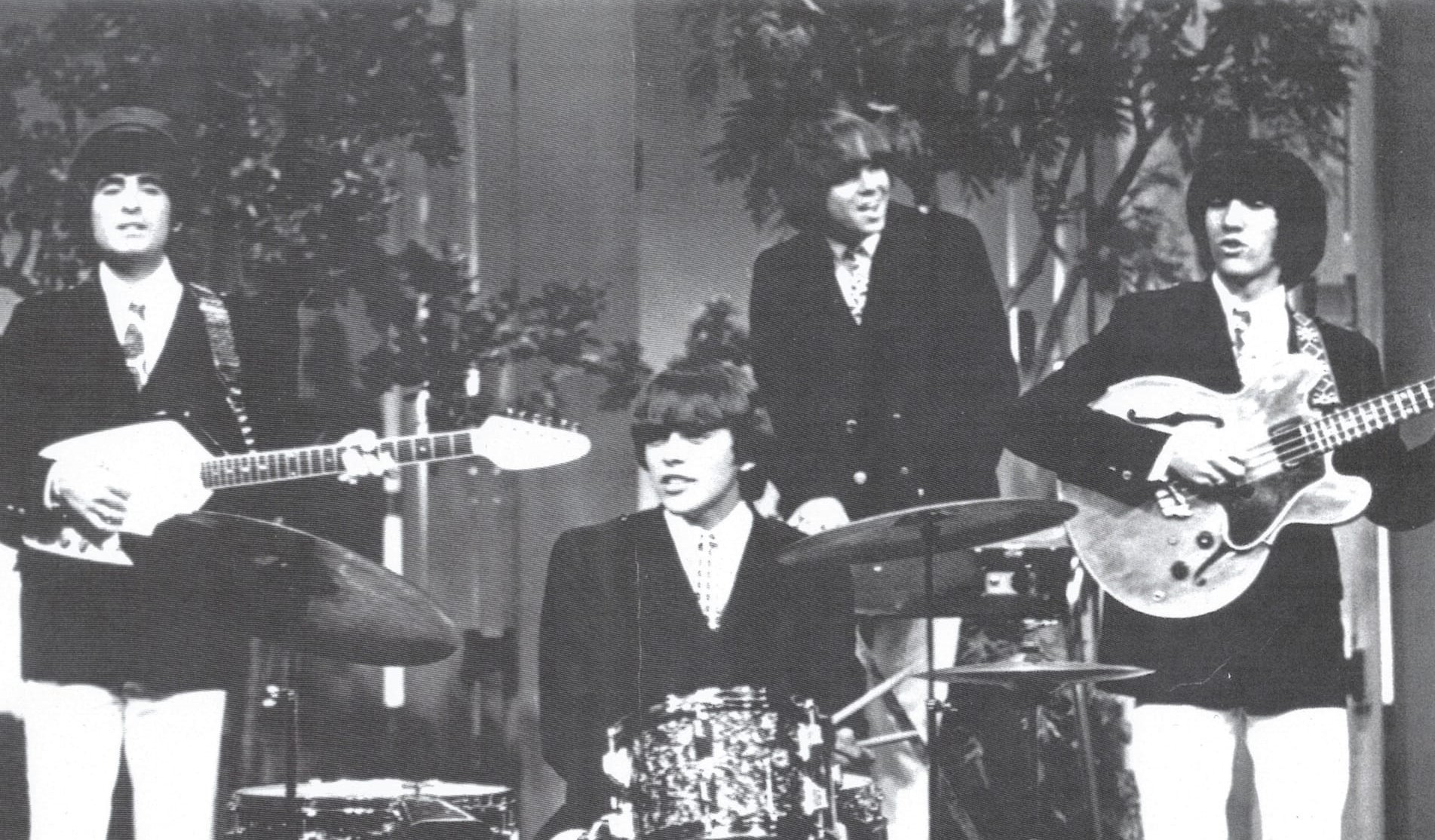
One silly thing that the producer did on your first album is that he sped up the album to “make it more exciting”.
I guess that in those days they used to do that. They used to speed up the 45’s or the LPs to make it sound a little bit more edgy I guess. It was kind of weird, but I remember we used to go to the mastering lab on Hollywood Boulevard, I think it was. I still remember that.
Do you remember writing ‘Dirty Water’?
Yes. I remember we recorded ‘Dirty Water’ on top of this garage that Cobb brought us to. And he had a few… some lyrics… because he was in Boston to visit his girlfriend and he was down the river Charles with the muggers and the thieves. But the song came to nothing. We kind of put it in the drawer… There were three chord changes and nothing, until one day we started recording other songs and we somehow would dig out ‘Dirty Water’ again. And we kept saying we needed something in the front. So I went home for a couple of days… I started playing some stuff on my guitar, and then because I think ‘Satisfaction’ was out in those days. And so I kinda remember I go, maybe I’ll come up with a riff myself, something like that. And so I start messing around. That’s when I came up with the famous riff of ‘Dirty Water,’ which years later Bruce Springsteen covered in his live set. Unbelievable! I could not believe him playing my riff! That was my biggest great honor… I was very honored by that.
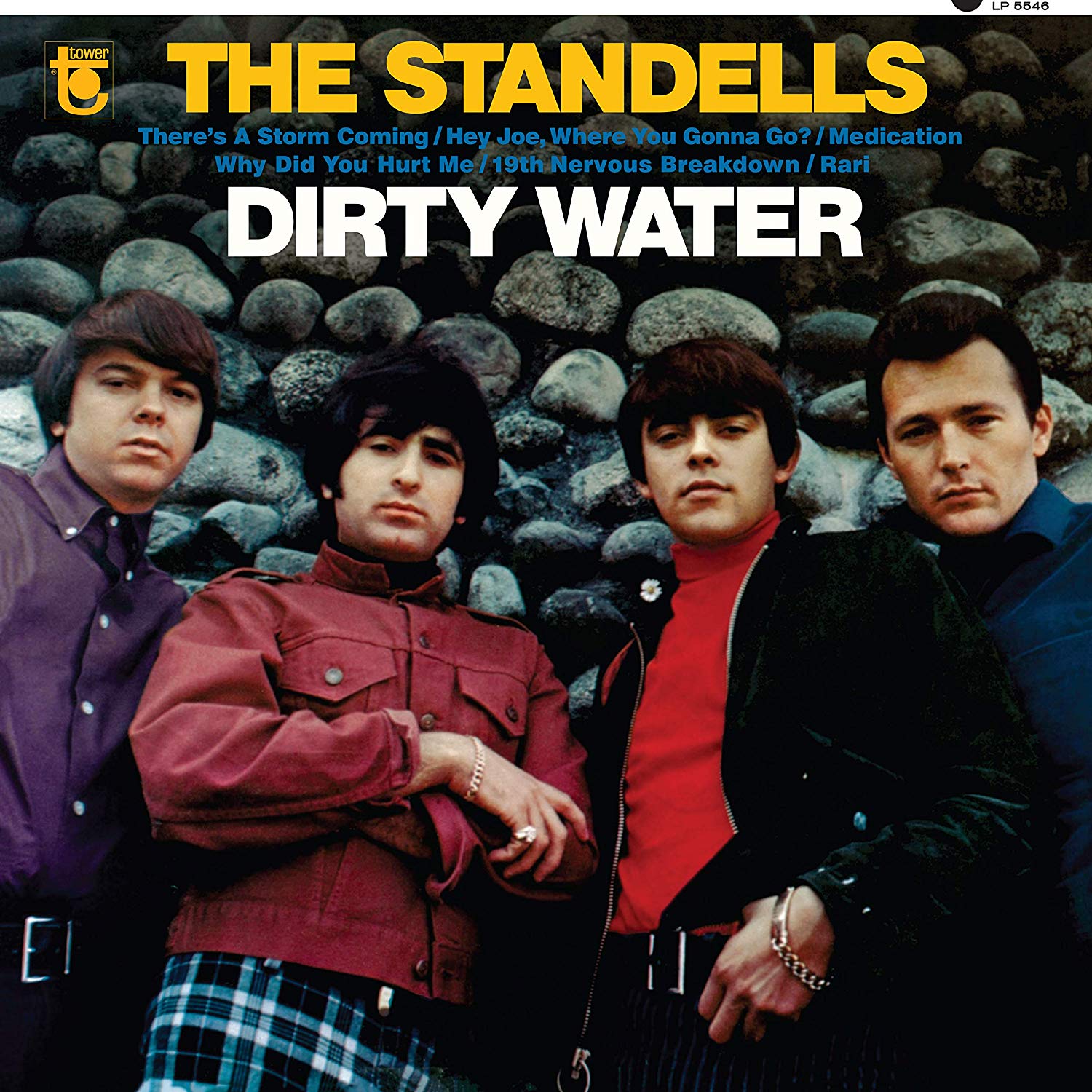
You were among the first bands that let your hair grow long. What influenced this decision?
So we were playing at the Peppermint West in Hollywood, where all the movie stars used to come… every night. It was a big scene. As a matter of fact, I remember Johnny Cash came in one night and he sat in with us. And he goes to me, “Tony, D as in dog. D as in dog!” I couldn’t believe it! I was next to Johnny Cash playing guitar! I could not believe it. I was so scared!
But anyway, about growing the hair: my mom used to get this magazine from Italy. And I was at home one day. I was looking at this magazine and I saw these four guys with long hair and I go, Wow, look at this! And they started becoming popular in Italy. And these four guys with long hair were called the Beatles. So I rushed to the guys and I went: Look, look at this! Because nobody knew about the Beatles then. Nothing. Not a word in America. This was in 1964. Like not yet The Beatles…They were nobody yet. And so we all went…Gary gets this idea… We all went and got wigs. And the next night we went on stage with the wigs, and people were going crazy! They were flipping out! The photographers were taking pictures. We were in the magazines. Then our manager came in and he signed us up. We went to PJ’s and from there we went to Las Vegas with the wigs. And then our hair got longer. And I remember we were playing at the Thunderbird Lounge with Louis Prima and Martin Berle was there one night, came in to see us, and he invited us to see his show. The next day or week we went to his show and he made us sit in the front row. Well, we couldn’t figure out why and I go, Wow, this is great! And they gave us dinner, the whole thing! And then the minute he came on he said, Ladies and gentlemen, we have these four young ladies in the front, please stand up. And he started making fun of us. That was crazy! It was so funny! But anyway, from then on, we would grow our hair long and that was history.
How did ‘Life Is a Bowl of Cherry Drops’ by The Cherry Drops come about?
I met Vern Shank. He’s got a radio show in Florida. Flagler Beach, 97.3. And we became very good friends. And so he invited me to be in this video. And I did the video. And we became friends. And so I went to Florida. I did a tour with him. And that’s how that came about.
Looking back, what was the highlight of your time in the band? Which songs are you most proud of? Where and when was your most memorable gig?
The most memorable place where I played or a gig that I’ve done was the Shea Stadium in New York with 100,000 people! When we played with the Rolling Stones on tour. That was incredible! With the Rolling Stones, lucky to be alive, I’m telling you, those guys were crazy. Anyway, my other memorable gig was when we were at Paramount Studios doing the Bing Crosby Show, and Lucille Ball was there because her husband was playing our manager on the show. And so I couldn’t say a few of the lines. And so Lucille Ball says, “Come ‘ere Tony.” She took me to another room and she coached me to say some words… I couldn’t believe it! I was so nervous! And here I was with Lucille Ball, coaching me to say some words that I couldn’t pronounce right. And it was like, incredible to be with Lucille Ball! That was my most memorable gig that I’ve done at Paramount Studios in Hollywood.
What songs am I most proud of? ‘Main Line’. I like that. It was never released by the Standells. The other ones I like a lot are ‘Rari,’ and’“Love Me’… a couple songs that were released, a couple that weren’t. But they were on the album and not released not as singles. And ‘All Fall Down’. Another song: ‘Riot on Sunset Strip’.
You’re still very active…
Yes. I’m still a big part of the recording industry. And I got signed with Big Stir Records. They’ve been really nice to me. And because Dennis Chuning actually signed me with them… well he helped me sign with this label, which they’ve been really great people. And their advertising is great. They’re always there for you. That sort of record company should be always like that. And so I have a new single. I… we released several singles like ‘Barracuda’ from the Dirty Water Revisited album. And then ‘Sometimes Good Guys Don’t Wear White’. And now this original one that is on the LP is called ‘I’m A Sexy Punk Rocker’. Another one’s called ‘Vicki’… Another original. It was written by myself and Gary Kaluza anyway, so I’m still active.
Okay. The other one you wanted to know about, ‘Suitcase Full of Dreams,’ my LP that I released last year independently because I came from Italy with a suitcase with just almost nothing. And there was no money and no phone, no clothes. It was just…almost an empty suitcase. But I called it Suitcase Full of Dreams, and I have 12 songs there, all originals. We released the new ‘Dirty Water Revisited’ album on Big Stir Records, of course. So I am always there talking about music, hanging out with musicians, never giving up and just keep on rolling this music out.
Is there any unreleased material left?
And as a matter of fact, I have some new kids around the block going to record some of my new material, songs that I’ve written, bands like The Wooly Bandits. They’re going to be recording some of my songs coming out pretty soon. Christa Collins, she’s an incredible artist and a great singer!
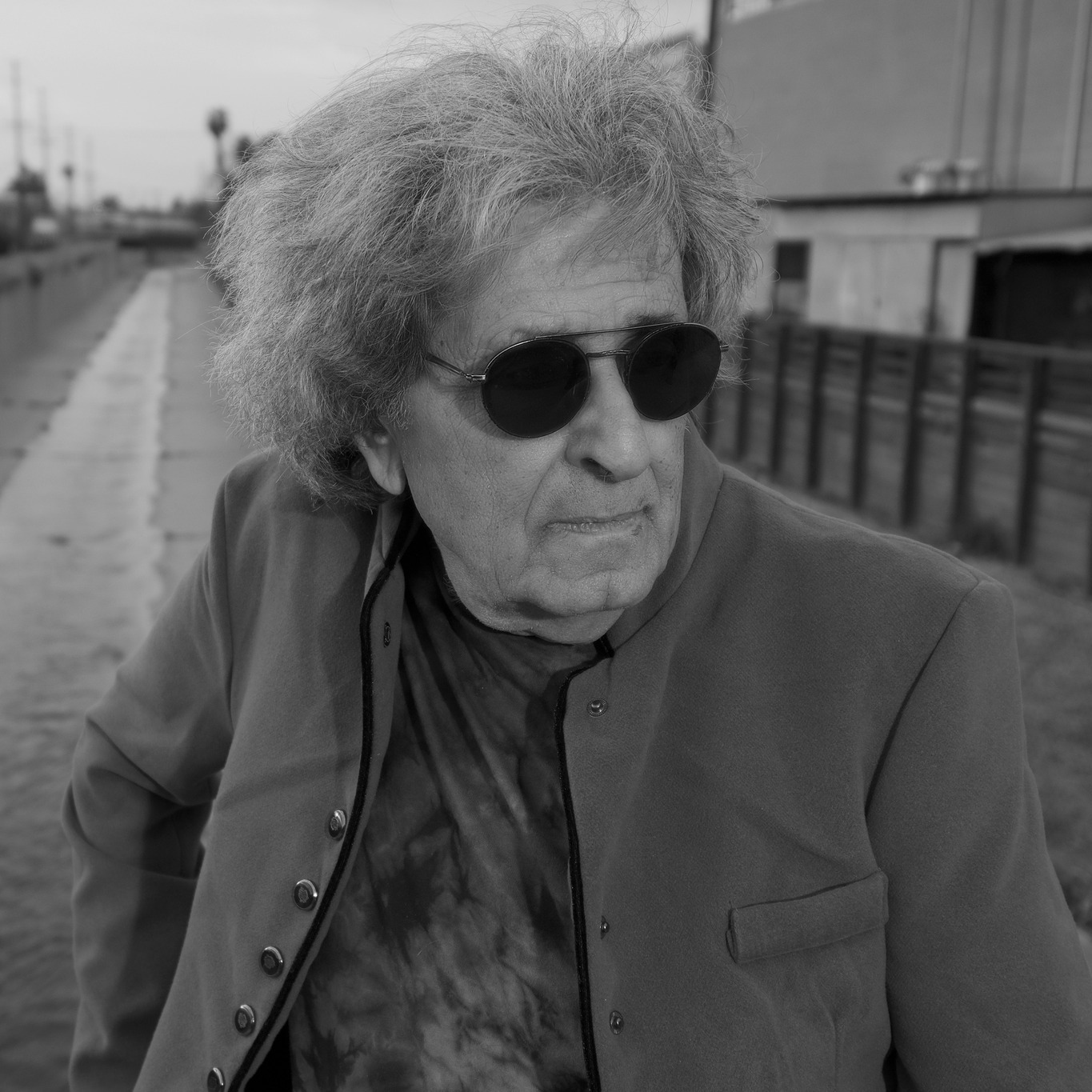
Thank you for taking your time. Last word is yours.
So I must say goodbye for now. Thank you very much, Klemen. You’ve been more than kind, and I really appreciate it. You’re putting me out there after all these years. God bless, and rock ’n’ roll is alive!
Klemen Breznikar
Headline photo: The Standells in 1966 | L-R: Larry Tamblyn, Tony Valentino, Dick Dodd and Gary Lane | Public Domain
Tony Valentino Facebook
Big Stir Records Official Website / Facebook / Instagram / Twitter / Bandcamp / YouTube

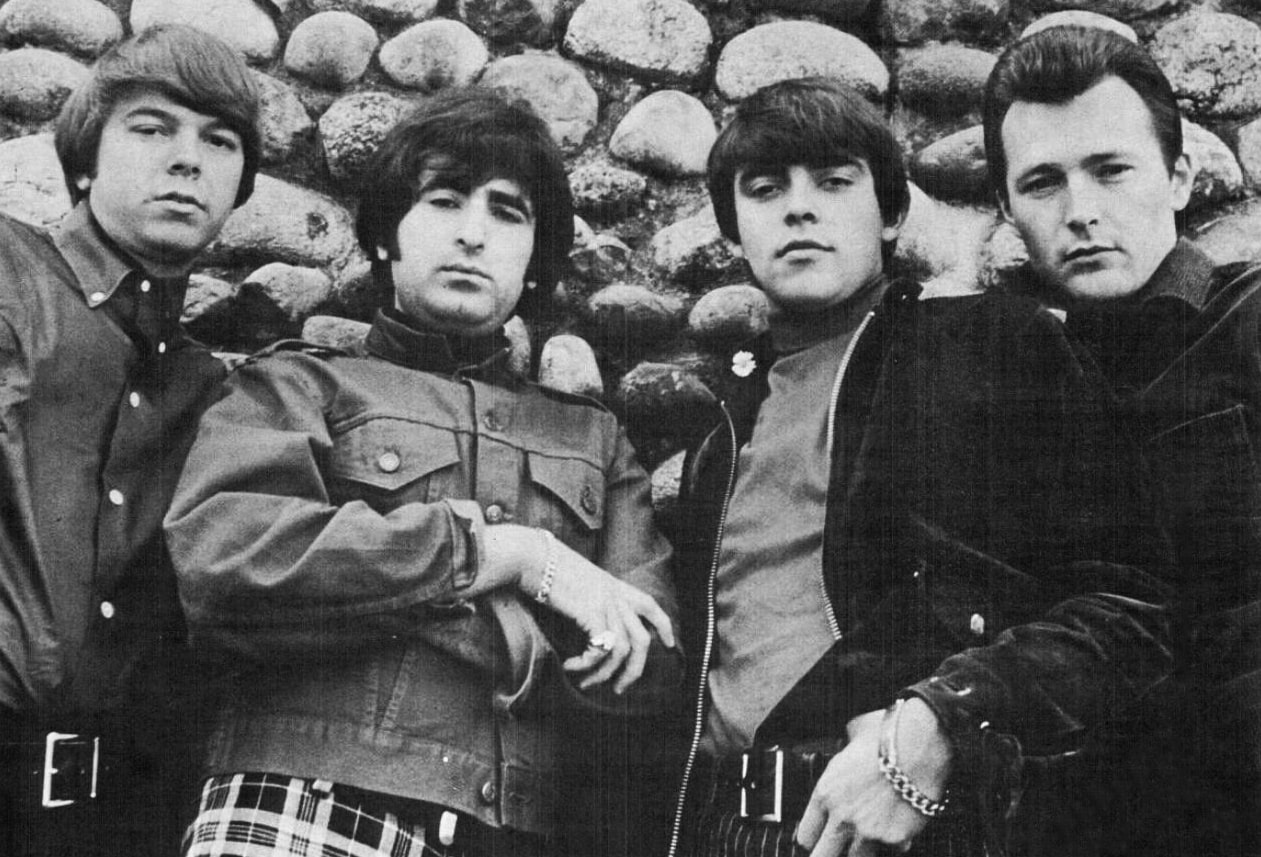
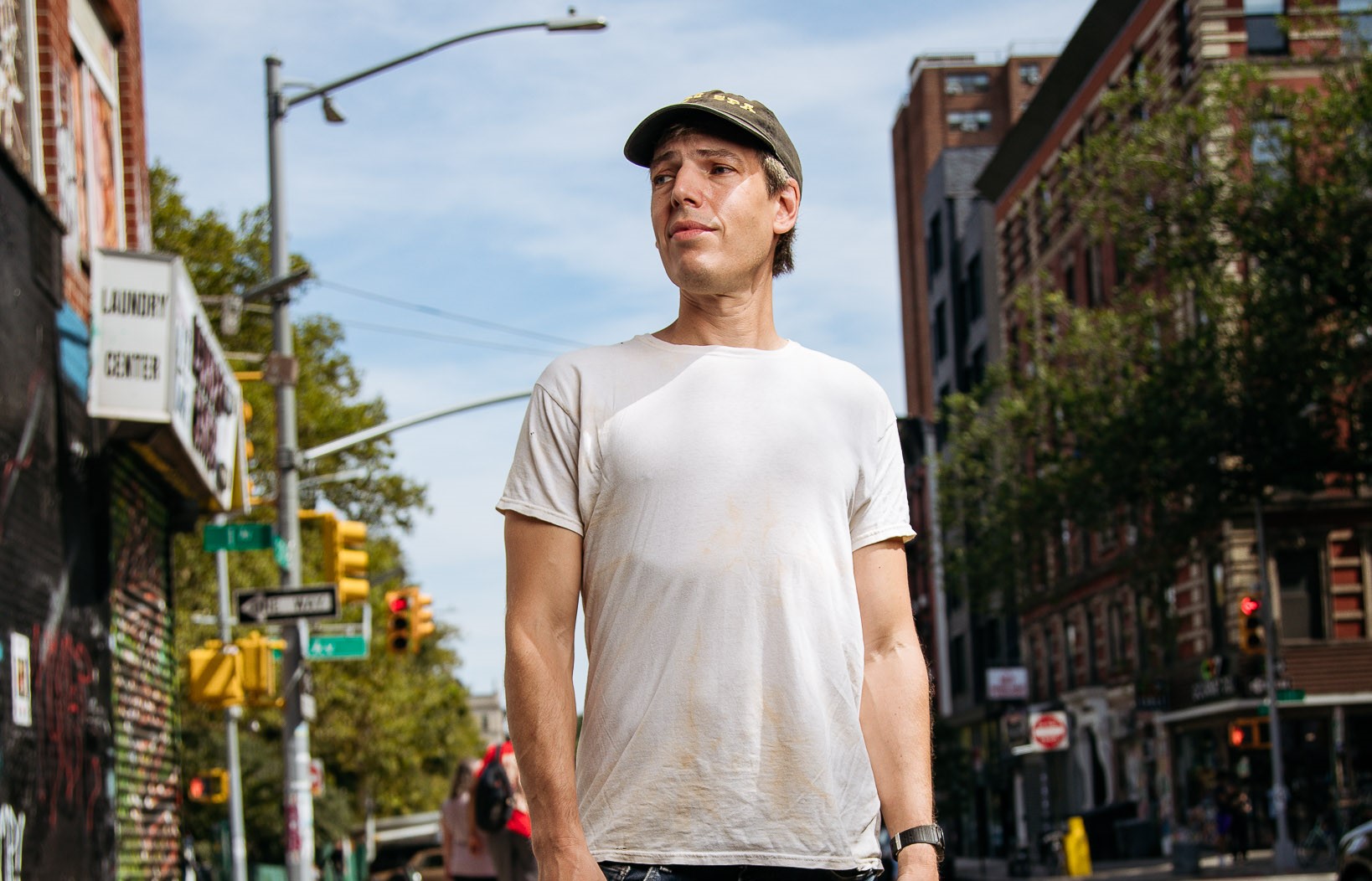
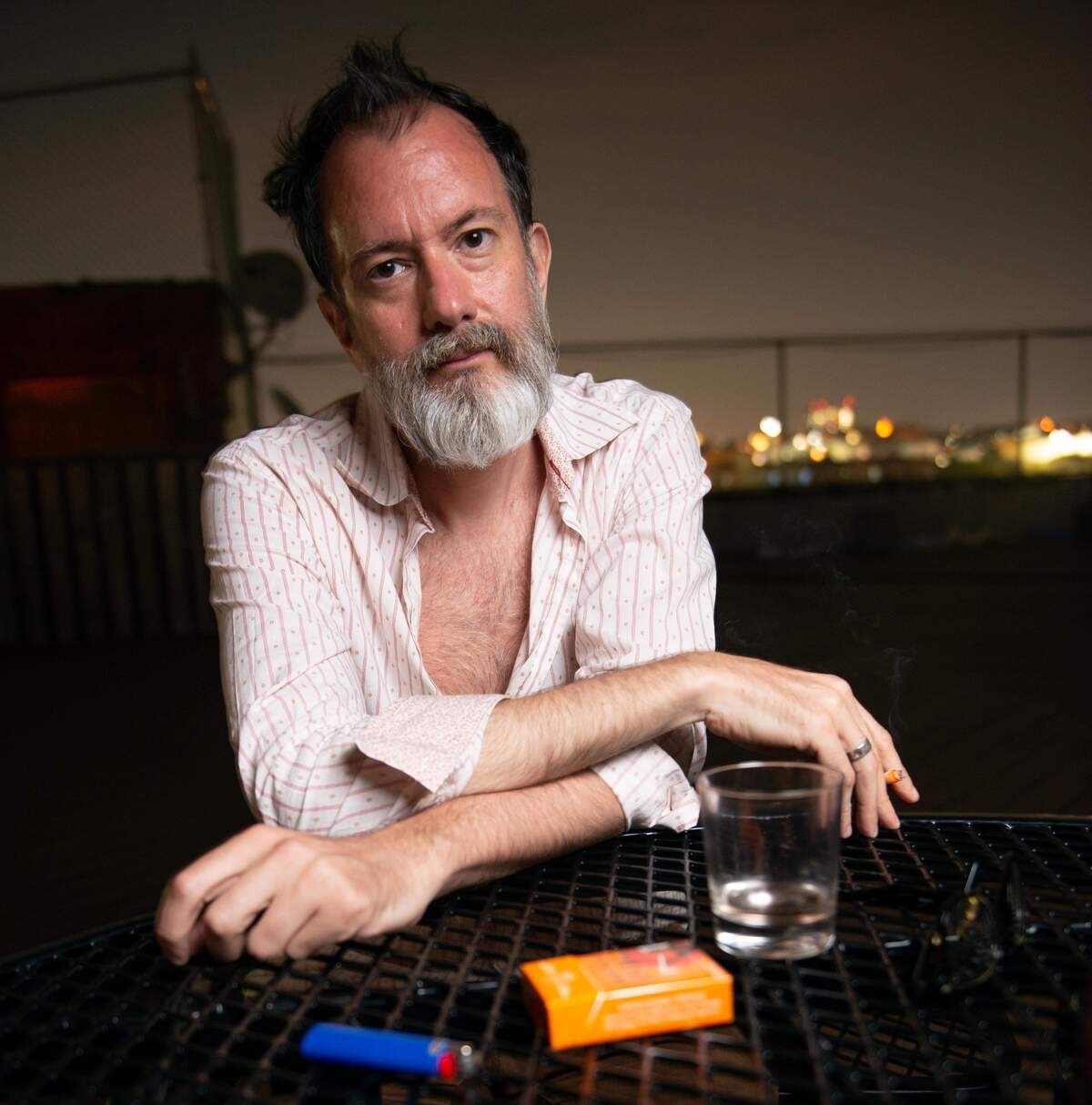

Tony once stated on Twitter “I made the Red Sox famous”. In this interview he has greatly embellished his role in the Standells, including how the group was formed. Tony quit the Standells in 2009 to join a cover band called the Icons. At that time, I re-formed the Standells and have continued to perform throughout the world for the past several decades. Tony has since attempted to re-claim his role in the group, including the enhancement of his participation in it. To find out the true story of the Standells, please read my biography “From Squeaky Clean to Dirty Water”, published by BearManor Media, which has received a solid four star rating from readers on Amazon.